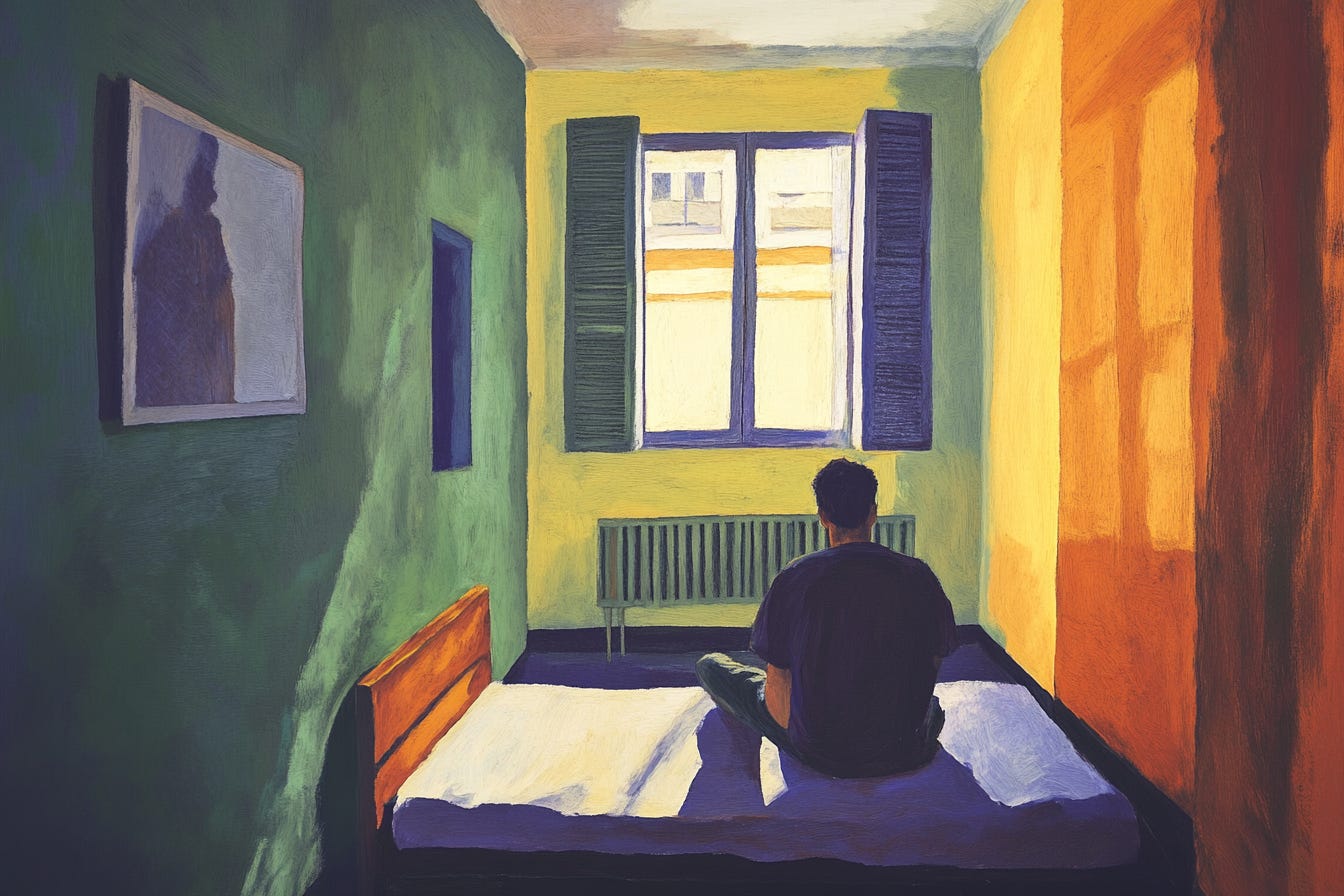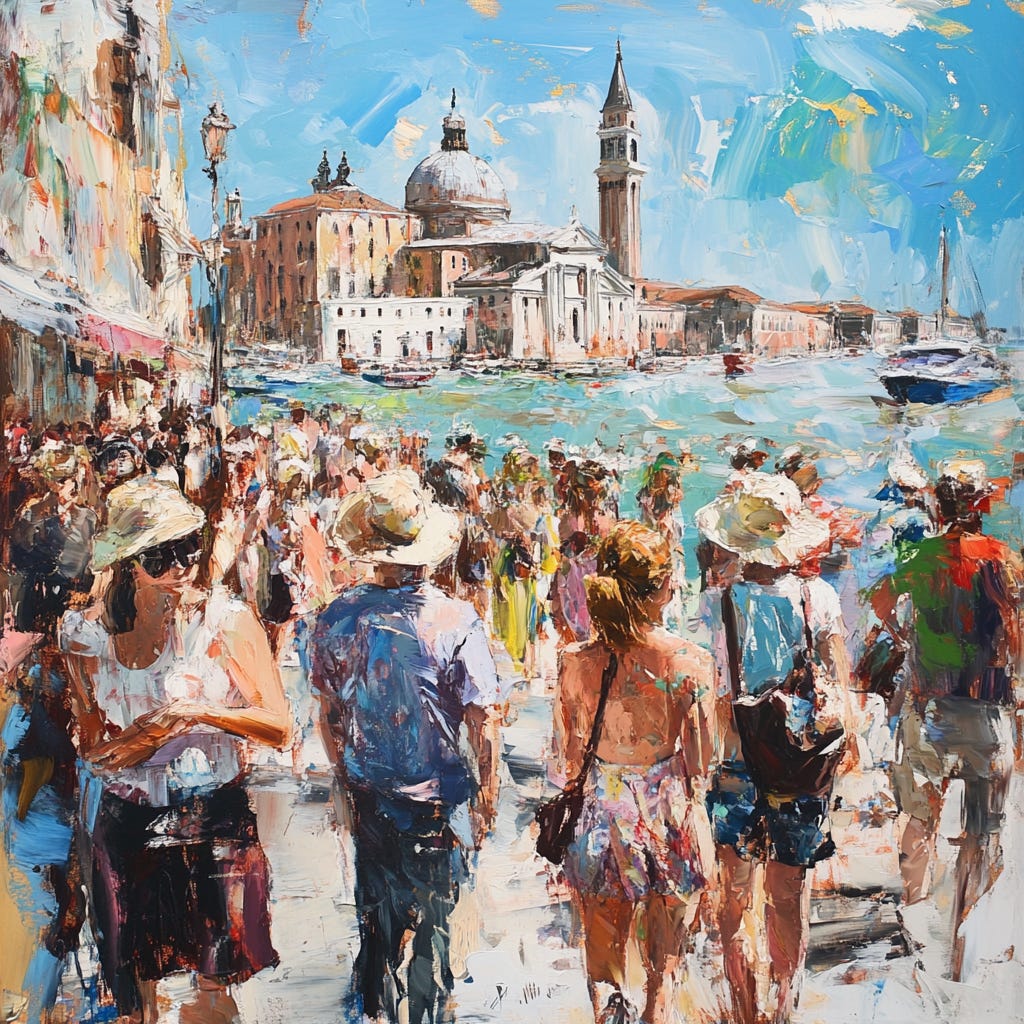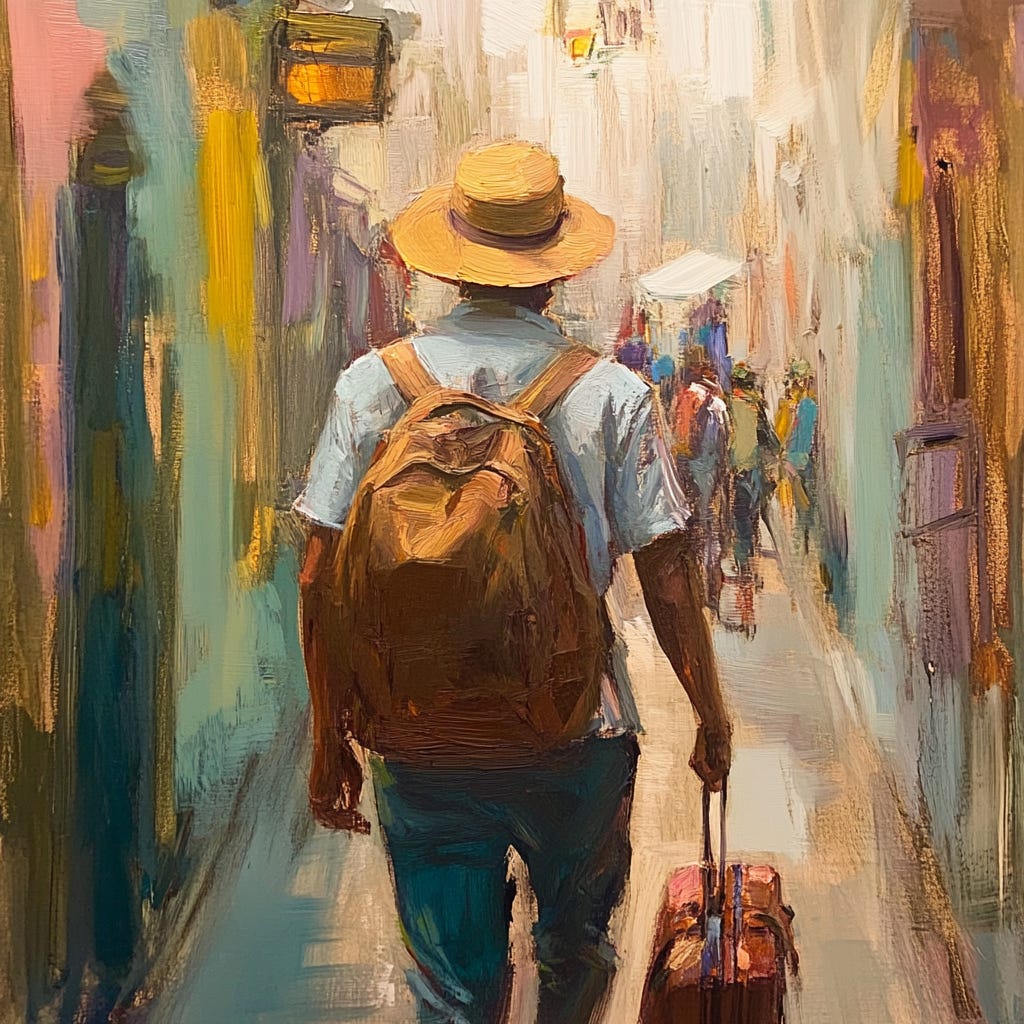The Golden Age of Solo Travel Is Over
The fall of the gap year; the rise of objective-driven travel; old man shouts at cloud
Gentle Reader,
This week’s entry runs the risk of appearing to be a rant against the whippersnappers, written by somebody who is no longer young.
Maybe I am out of touch, but I have been feeling for some time that how we travel, especially solo travel, has changed a lot.
I have done a lot of solo travel. Almost a decade ago, I quit my job for about 9 months and went travelling and sort of just hanging around in various places. Before that, I entered into a period of several months of very casual work, taking shifts that suited me, and when I came back from the trip, I resumed this same pattern of casual work.
The current version of me wouldn’t have the balls to do this. Maybe it’s my age, or maybe it’s insecurity in the job market or maybe it’s the fact that being a solo traveller ain’t what it used to be.
The strongest reasons for this seem to be the demise of the youth hostel, the death of nightlife, and a job market which, combined with inflation, implicitly warns against prolonged periods of time off.
Separately, it seems fair to say that travelling isn’t as fun as it used to be, since the world has generally become over-touristed and since many attractions exist, above all else, due to their Instagrammability.
The Youth Hostel
I don’t travel very often on my own anymore, at least not for longer trips like I used to. But when I do, my impression is that the youth hostel, once that core element of solo travel which facilitated meeting people and making holiday friends, is more or less dead, except for the really big successful ones.
Nowadays, your average hostel has turned into a medium-term accommodation for many people who are looking for something more secure, due to the worldwide difficulties in the housing market. This stands in contrast to when ‘youth hostels’ were for…the youth.
In the golden era, everyone under the one roof would be aged between 18-25, all happily mixed together in dorms and hanging out in common areas, before hitting the bars and nightclubs, after getting exceptionally drunk on vodka beforehand.
Now, if you are a solo traveller, you will then end up in a hostel where people are basically living, rather than holidaying, which is a vibe shift to say the least.
Nightlife & Alcohol
Even if you do find some willing pals to carouse with, it’s no secret that nightlife is on the decline pretty much everywhere. This is most likely due to a mixture of inflation and people being on their phones all the time, neither a phenomenon which encourages people to go out. When people do go out, the magnetic allure of the glowing screen does just enough to break up the social flow of many interactions, and my instinct is that people are less likely to talk to strangers or strike up serendipitous conversations.
People also generally just drink less, which compounds the decline of the appeal of loud and dark places. When I was young, we all drank too much. If I was an economy, my GDP probably would have shrunk 30% due to hangovers.
The youth are right about that: hangovers are a terrible and expensive and crippling waste of time.
But I also have to be honest and say that alcohol was, and probably still is, the best social lubricant known to man, and is responsible for just about any romantic liaison I ever had, up to my mid-to-late twenties.
I think the move away from alcohol is the right one, but as a mechanism which makes socialising much easier, it is pretty much impossible to replace, especially given that, indirectly, it competes against screentime.
Overtourism
Now, looking for attractions, the young solo travellers all gravitate towards the same restaurants or cafes or ‘hidden gems’ which the biggest TikTok influencers are currently pushing. Moreover, the traditional ‘must-see’ sites at pretty much every major tourism location have become ridiculously overcrowded, which has sucked the joy out of travel.
Have you tried to go to the Colosseum, Angkor Wat, the Louvre recently? Anything which is in any way notable is just way over-touristed. As somebody who hates waiting for just about anything, spending half my holiday queueing or stressing about booking, is not enjoyable.
Part of the fun is feeling like you are doing something nobody else is doing, and the requirement to pre-book hotels and hostels and experiences far in advance, is a dementor which sucks the soul from the trip, and which deprives the traveller of the secret ingredient which adds the magic to the solo travel experience: spontaneity.
When I went inter-railing around Europe, my friends and I had no idea what we were doing. We didn’t have a single recommendation for anything. And it was great. We met lots of people and partied too much and I got drunkenly robbed in an episode of which I have no recollection. But it always felt like we would discover something, that we were off the beaten track, rather than implicitly guided by social media recommendations and expectations, as we were free from the yoke of having to Instagram our trip.
I’m glad. I can’t imagine the state of us on our trip. If I saw a photo now, I would probably cry with laughter. We didn’t take a single photo in 3 weeks of inter-railing which, admittedly, was stupid, but also illustrative of where our heads were at.
It’s the economy, stupid
To me, it feels like the final nail in the coffin, especially for those who would want to take a gap year, is the jobs market.
Unemployment is actually not high at all anywhere, but there is a general sense that many people are stuck in a job which they don’t like, because they are afraid that if they leave they won’t get another one. Plus, the competition for entry-level graduate employees, who traditionally occupy the lower rungs of the ladder, seems to have increased, which makes the youth disinclined to go on a gap year abroad, finding themselves.
These kinds of prolonged trips are now more likely to be taken by people having a “crisis” in their late twenties or, increasingly, thirties. These are people who have built up a bit of career capital, some savings, but have burnt themselves out at the hands of Big Tech or Big Pharma or just at the behest of a demanding boss somewhere, anywhere.
They take their money and bop around the world for a couple of months, albeit in the midst of a solo travel scene which is increasingly fragmented.
Instead of traditional backpacking, there has hence been a push towards more goal-oriented activities, opening the door to a new style of ‘travel’ – the objective-driven retreat.
The retreat
Gone are the days of a round-the-world trip in 3 months. Now, the average 31 year old sabbaticalist is more likely to do an activity-based retreat, as a way to find community and to nibble away at the feeling of ‘wasted time.’
Enter the month long yoga retreat, the writing course in a Provence farmhouse, the residence in a house share amongst creatives in a European city.
I was once an intrepid traveller, yet now the above kind of approach holds greater appeal to me. Rather than staring at hotel walls and dragging my suitcase from one hotspot to another, I would rather turn up somewhere comfortable, with like-minded people, and engage together in a craft.
Such experiences, however, are generally not for the faint of wallet. These activities will come at a premium, and two weeks in a loft in gay Paree will cost you as much as a year doing the old school style of travel used to cost, the kind where you would stay in hostels, eat tinned fish for lunch and dinner, and where you would chance not buying a ticket for the Zagreb metro, spending the whole trip worrying about inspectors.
Sayonara
The glory days are gone, or at least that’s how I see it. Are the youth okay? Maybe they are just fine, and my calcifying lenses have given me the wrong impression.
Nonetheless, I think the era of chaotic travel, en masse, is behind us. The new generation of travellers, those who brave the skies and the loss of income, have already seen the sights and sounds online before they set foot on the plane, and the travel-world into which they enter is much changed.
That wilderness in which we once roamed has been replaced an environment in which the pseudo-curated imagery and deceptive narratives of the glowing screen are realised, in their monotonous sterility, in the 3D world of sight and sound.
Affiliates:
My friend Paul Millerd runs the Pathless Path Community, a cozy online space where we support each other to find ways to live and work in the most authentic way possible.
I also recommend the Supernote e-ink device, which I use for reading, writing, and annotating documents. This affiliate link is only valid for EU customers.








This is definitely a truism. I was in Japan this past winter and I was adamant about bringing my Lonely Planet book. I LOVE that book for its suggestions, historical references and just overall vibe of the respective country. Sadly, this was the last trip I'll bring it with me. That spontaneity is gone. The finding yourself in a new place and then reading about it is few and far between and, let's face it, it's all there online. I fought it for too long. Those LP books are serious tomes. Also, a few years back when I stayed in a Copenhagen hostel, it broke my heart seeing everyone on their devices at the bar. No one speaking to each other. The death of the youth hostel is very real.
You should definitely do a deeper dive essay on this and interview people on your next trip